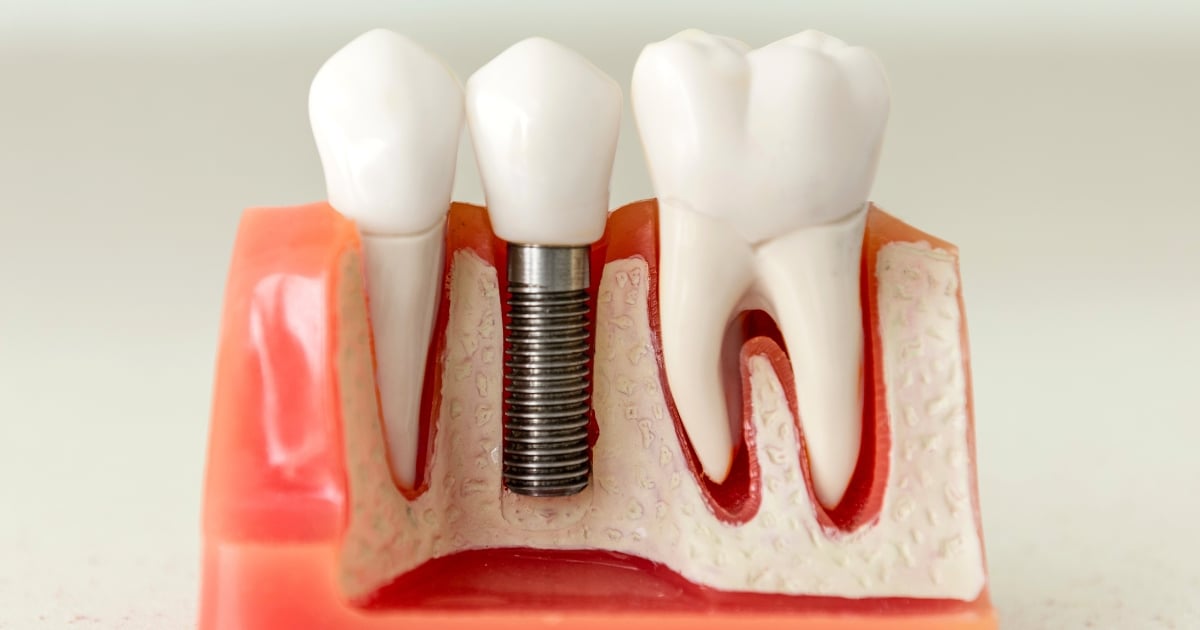Published on January 7, 2025

Dental implants have revolutionized the world of dentistry, offering a permanent solution for missing teeth. You can get aesthetic benefits and improve functionality, restore your smile, and help maintain overall oral health. However, a common concern is whether you can still get them if they’ve had previous dental work, such as root canals, crowns, or dentures.
Read this blog to explore how your previous dental work may affect your implant eligibility.
How Do Dental Implants Work?
The dentist will place artificial tooth roots into your jawbone to support replacement teeth, such as crowns, bridges, or dentures. They are made from titanium, a biocompatible material, and integrate seamlessly with your jawbone. Implants are a long-lasting, stable solution for replacing your missing teeth.
They work by providing a strong, durable foundation for your artificial teeth. You can also preserve the health of adjacent teeth. They will stimulate your jawbone and prevent bone loss. This oral appliance looks feels, and functions like natural teeth, offering comfort and convenience.
What Are The Types of Dental Work That May Affect Implants?
You might wonder whether your prior dental work will impact your ability to get dental implants. Here are some common dental treatments and how they could affect your implant candidacy.
Dental Bridges
Dental bridges are used for replacing one or more missing teeth. They are anchored to your adjacent teeth. However, they don’t address the underlying problem of jawbone loss. Implants, however, offer a better long-term solution. They can replace a single tooth without impacting neighboring teeth.
Dentures
Dentures are a popular option if you have lost most or all of your teeth. They are effective for many, but they can be uncomfortable and inconvenient. The modern prosthetic teeth can significantly improve the stability of your dentures. Implant-supported dentures can offer a more comfortable and secure alternative. T
Root Canals & Crowns
If you’ve had a root canal and crown placed on a damaged tooth, it’s still possible to get this procedure done. If your tooth is severely damaged, the best option may be to remove the tooth and replace it with prosthetic teeth.
Bone Grafts
You have had previous bone grafting or jaw surgery and may be concerned about your eligibility for implants. The good news is that you can still opt for dental implants. In fact, bone grafting is sometimes performed to enhance your jawbone’s strength and density, making it more suitable for this dental device.
What Factors That Influence Eligibility for Dental Implants?
Here are the contributing factors:
Bone Density
One of the most important factors in determining whether you are a candidate is the health and density of your jawbone. A strong jawbone is necessary for supporting this procedure. If you have experienced significant bone loss, you may require a bone graft to rebuild your jaw.
Gum Health
If you have a history of periodontal disease or have receding gums, it may affect the outcome of your implant procedure. Gum disease can weaken the bone and increase the risk of failure. You must address any gum health issues before considering implants.
Overall Oral Health
Your overall oral health plays a role. If you have untreated dental issues, such as cavities or infections, you must address these issues. Lifestyle habits such as smoking or diabetes can also affect your healing after the treatment.
What Steps Are Involved In The Consultation Process?
- You must schedule a consultation with a dentist. The dentist will review your medical and dental history.
- The dentist will likely take X-rays or a CT scan. The professional will determine your eligibility for this procedure.
- Based on the results of the examination and imaging, your dentist will create a personalized treatment plan tailored to your needs.
- The dentist might give recommendations for additional procedures, such as bone grafting or gum therapy.
If you’ve had previous dental work, getting dental implants is possible. Whether you’ve had dental bridges, dentures, root canals, or even jaw surgery, this treatment can often be a viable option. The key is working with a dentist who can evaluate your case and provide a treatment plan tailored to your needs.
Want to replace your missing teeth permanently? Schedule a consultation to learn more about your options.
